Types Of Neck Acne And Home Remedies For Pimples On The Neck
Curb the growth of swollen bumps on your neck with easy-to-follow steps at home.
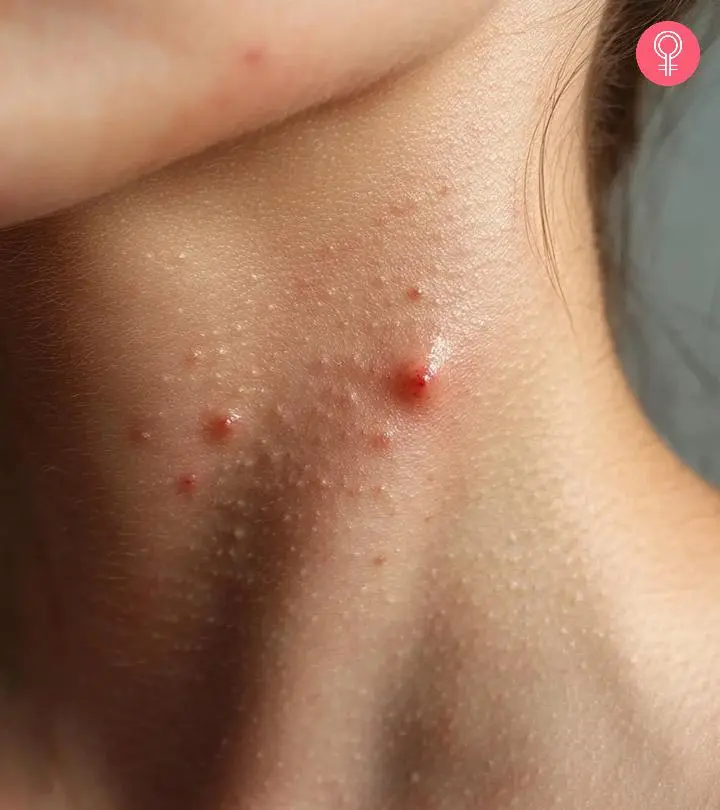
Image: Midjourney/ StyleCraze Design Team
Acne is a treatable skin disorder that usually affects the face, back, and chest. However, acne can also appear on your neck. Unlike facial acne, neck acne is often undetectable but may cause severe mental distress as well as feelings of self-consciousness. You need to its causes and treatment options to effectively manage the condition. In this article, we discuss the different types of neck acne, its treatments, prevention, and much more. Keep scrolling!

In This Article
Types Of Neck Acne
It’s essential to figure out what type of acne you have before you treat it. So, let’s take a closer look at the different types of neck acne.
Acne can be either inflammatory or non-inflammatory.
1. Inflammatory Acne
In this type of acne, bacteria block pores apart from sebum and dead skin cells.
Swelling and inflammation are symptoms of inflammatory acne (1).
- Pustules: Pimples with a white-colored head filled with pus, dead skin cells, and abundant oils are called pustules. They can appear on the face, back, shoulders, and other parts of the body (1).
- Papules: These inflammatory lesions appear as red lumps (similar to rashes) on your skin. They can form on the neck, chest, chin, shoulders, back, buttocks, and other places on the body (1). Chin acne and back acne are often linked to hormonal changes.
- Nodules: Nodules are deep, painful lumpsthat form beneath the surface of the skin. Nodules may require medical attention and are not always treatable with over-the-counter medications (1).
- Hormonal Cystic Acne: Hormonal cystic acne is the most severe and painful type of inflammatory acne. These soft, big, fluid-filled lumps form beneath your skin. If you are wondering how to treat hormonal acne, it’s best to consult a dermatologist and follow the suggested treatments to manage them safely.
2. Non-Inflammatory Acne
Non-inflammatory acne does not cause any swelling.
This acne can be identified by open and closed comedones (clogged pores) (1).
- Blackheads: In a blackhead, a mixture of sebum and dead skin cells clog the pore while the pore’s top remains open. Being exposed to the air makes the surface of the clogged pore oxidize and take on a distinctive black tone.
- Whiteheads: Whiteheads occur when sebum and dead skin cells clog a pore. With the pore’s top closed, it looks like a tiny protrusion emerging from the skin’s surface.
But, the question remains – what causes pimples on the neck? Find out in the next section.
Key Takeaways
- Papules are inflammatory lesions that appear as red lumps on your skin.
- Dead skin cells, excess sebum, debris, and bacteria accumulation can clog the pores, turning them into pimples.
- Extended stay of sweat, coupled with bacteria, on the neck may cause acne breakouts.
What Causes Pimples On The Neck?
Clogged pores are one of the reasons behind pimples on the neck. Dead skin cells, excess sebum (oil), debris, and bacteria accumulate and clog the pores, turning them into pimples.
The pores on your neck can get clogged due to different reasons. A few of them are:
1. Not Keeping Your Neck Clean
Your neck is prone to collecting dirt and bacteria as most people focus on cleaning their faces only. Cleanse your neck regularly with soap and water and exfoliate it once a week to prevent the pores from getting clogged.
2. Not Wiping Away Sweat
Wipe your neck whenever it starts sweating. Allowing sweat, coupled with bacteria, to stay on your neck for an extended period of time may cause acne breakouts.
Furthermore, avoid touching your neck frequently as dirt from your hands can transfer to your neck, leading to the formation of pimples. For those wondering does touching your face cause acne or aggravate them? – the answer is yes. While touching may not be the prime reason for causing acne, it can definitely worsen the symptoms.
 Trivia
Trivia3. Unbalanced Hormones
A hormonal imbalance can also be the source of neck acne.
For instance, the excess production of the estrogen hormone during pregnancy may lead to neck acne (1).
4. Long-Term Stress
While stress is not a direct cause of acne, it can undoubtedly contribute to the condition. Stress causes the production of androgens to increase, which may cause the sebaceous glands to generate more oil. This excess oil can clog the pores on your neck and cause acne (2).
Stress-induced changes in hormone levels can also cause inflammation in the body, delaying the healing of acne breakouts (2).
5. Irritation Caused By Clothing
Irritation caused by clothes and accessories is claimed to lead to acne.
In addition, there is a possibility of acne formation if sweat is not correctly absorbed by your clothing. Therefore, you should maintain caution while selecting your clothes and accessories.
6. Use Of Comedogenic Skincare Products
It is important to read product labels carefully and check for any ingredients that can clog pores. Using comedogenic skin care products may worsen neck acne.
We frequently overlook our necks when starting new skin care regimens and experimenting with different facial treatments. However, we ignore our necks, resulting in pimples. Taking care of your neck the same way is just as important. If you have started noticing acne breakouts on your neck, here are a few home remedies that you can try out.
Home Remedies For Neck Acne
1. Tea Tree Oil
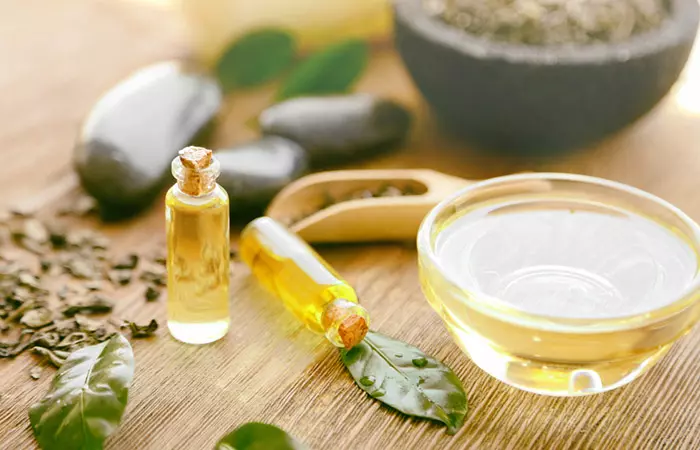
Tea tree oil reduces inflammation and redness and soothes your skin. In addition, its antimicrobial qualities aid in the fight against acne-causing germs (3). They are also said to dry out whiteheads and blackheads.
What You Need
- 8-10 drops of tea tree oil
- Cotton ball
How To Use
- Tea tree oil can be applied directly to the afflicted region with a cotton ball. Dab it on the skin after dipping it in the oil.
- Rinse it off thoroughly after 10 minutes.
Caution:
Do not use tea tree oil if you have sensitive skin.
2. Green Tea
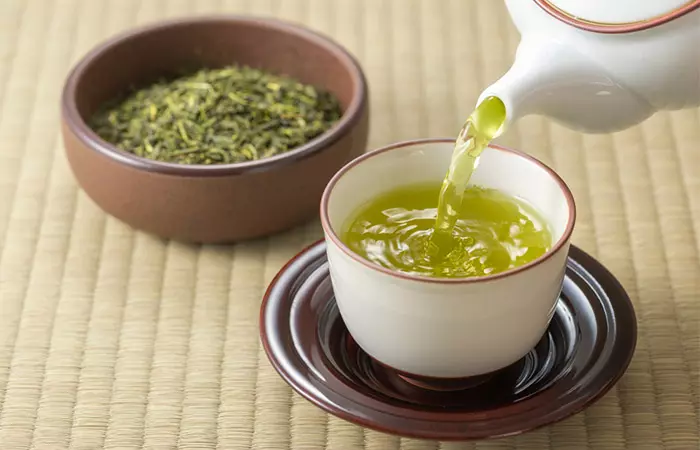
Studies suggest that the topical application of green tea may help in the treatment of acne. Green tea is high in antioxidants that minimize sebum production, bacterial growth, and inflammation (4).
What You Need
- 1 cup of boiling water
- 1 green tea bag
- Cotton ball
How To Use
- Steep the green tea bag into the boiling water.
- Remove the tea bag after 4 to 5 minutes and keep the beverage aside to cool.
- Dip a cotton ball in the steeped tea and apply it to your neck and other affected areas with a cotton ball.
- Rinse it off after 15-20 minutes.
3. Honey
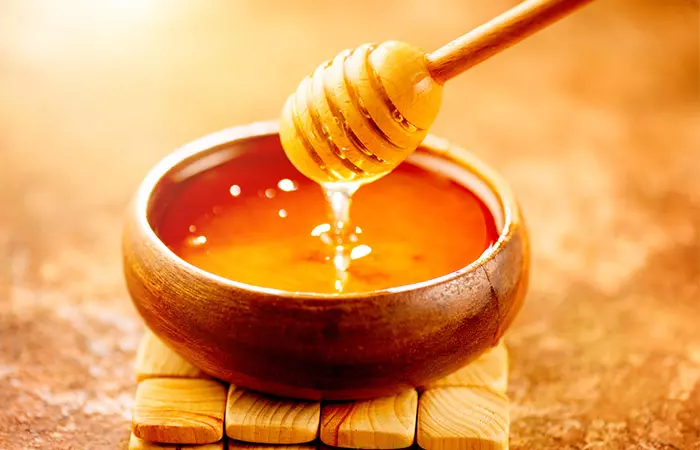
Honey has been scientifically recognized for its antimicrobial properties that inhibit the growth of Propionibacterium acnes and Staphylococcus aureus – two types of bacteria that cause acne (5).
What You Need
- Honey
- Cotton ball
How To Use
- Apply a generous amount of honey to the acne on your neck and leave it to dry.
- Wash it off after an hour. Honey’s stickiness aids in the removal of debris from the skin’s pores.
4. Aloe Vera Gel
Aloe vera is known for its anti-inflammatory properties, making it an excellent remedy for reducing the redness and irritation associated with neck acne (6).
What You Need
- Pure aloe vera gel
How To Use
- Apply a thin layer of aloe vera gel to the affected areas on your neck.
- Gently massage it into the skin.
- Leave it on for 15–20 minutes.
- Rinse with lukewarm water.
- Repeat twice daily to reduce inflammation and acne breakouts.
5. Oatmeal
Oatmeal is one of the best skin care ingredients that offers several skincare benefits due to its antioxidant and anti-inflammatory properties. Using colloidal oatmeal lotion may help manage acne as well as other skin irritations (7).
What You Need
- 2 tablespoons of oatmeal
- 1 teaspoon of baking soda
- 2-3 teaspoons of water
How To Use
- Mix oatmeal and baking soda in a small bowl.
- Add some water to make it into a paste-like consistency.
- Apply this mixture to the affected area.
- Leave it on for 20-30 minutes.
- Rinse it off with lukewarm water.
- Pat it dry and follow it with a moisturizer.
Note:
If you notice any adverse reaction – like redness, swelling, irritation, etc. – after using any of these home remedies, wash it off thoroughly and discontinue their use immediately.
If you would rather take the medicinal route to treat your neck acne, listed below are a few over-the-counter treatments that you can try out.
Over-The-Counter Treatment Options For Neck Acne
If you only have a few blackheads, whiteheads, or pimples on your neck, a pharmacist may advise you to use some over-the-counter gels, creams, or cleansers containing certain ingredients:
1. Benzoyl Peroxide
Benzoyl peroxide, commonly sold as a spot treatment, is an over-the-counter acne treatment medication that may help minimize sebum production and inhibit the growth of the bacteria that lead to acne formation (8).
2. Salicylic Acid
Salicylic acid is a peeling agent that aids in eliminating dead cells from the skin
. It is a common ingredient in acne cleansers and masks (9).
Nidarshana Sharma, a lifestyle blogger, talks about how a dermatologist helped her manage adult acne. Her dermatologist recommended using a salicylic acid face wash, a gentle moisturizer, and sunscreen. She writes, “Within six months, my skin got much better. And today, I’m largely acne-free (i).” Nidarshana further adds that she sticks to this routine religiously even today.
3. Azelaic acid
When used topically solo or in combination with other treatments, azelaic acid may treat acne and various hyperpigmentation conditions (10).
If your acne is moderate to severe, it is best to consult a dermatologist to figure out the root cause of your skin issues and get appropriate treatment.
Prevention is always better than cure. In the next section, let’s check out some preventive steps that need to take to keep acne at bay.
Prevention Of Neck Acne

- Use mild soap and warm water to wash your neck twice a day. Make sure you do not scrub it aggressively.
- Don’t pop the pimples on your neck, as it can aggravate the acne.
- Allow your skin to breathe. Avoid wearing clothing, headwear, or equipment that rubs against your neck.
- Avoid excessive sun exposure.
Use a sharp, clean razor and warm water if you shave your neck.
- Your neck acne may worsen in hot and humid places, so avoid them if you can.
- Avoid oil-based makeup and hair products.
- Maintain a healthy diet.
- Make an effort to stay stress-free by meditating and making time for your hobbies.
It can be very tempting to pop your pimples, but this only worsens the situation. Learn more in the next section.
Why Should You Not Pop A Pimple?
Popping a pimple is never a good idea. Picking on and popping pimples can irritate the affected region and result in scarring or blemishes. In addition, you risk infection by transferring bacteria from your hands to the pimple and the surrounding area.
 Quick Tip
Quick TipLearn when to see a doctor in the next section.
When Should You See A Doctor?
If your acne is not clearing up with home remedies or over-the-counter skin treatments, you should see a dermatologist. Also, seek medical attention if the pimples become painful, inflamed, and start oozing pus as these are signs of an infection. A dermatologist can help you figure out what medications and treatments are best for your acne and lifestyle.
The Final Takeaway
Acne on the neck can be just as aggravating as acne on the face. The easiest way to get rid of neck acne is to follow a good cleansing regimen. However, if your acne does not clear up within a few months or appears to be infectious, you should seek medical help and get advice from experts in dermatology.
Infographic: Dos And Don’ts Of Treating Neck Acne
Neck acne is common and caused by a variety of factors, including genetics, hormonal imbalance, and poor skin hygiene. If left untreated, neck acne can lead to scarring and hyperpigmentation. However, proper treatment and a healthy lifestyle can help you manage it effectively. We have listed some simple tips you may benefit from while treating neck acne. Check out the infographic below for more information.

Illustration: StyleCraze Design Team
Frequently Asked Questions
How do I know if my neck acne is hormonal or bacterial?
In most cases, acne develops due to hormonal changes in your body. However, the accumulation of dirt and oil can worsen acne and cause bacterial infection. Consult your doctor for further information and treatment on your neck and shoulder acne.
Is aloe vera good for neck acne?
Yes. Aloe vera has anti-inflammatory properties that may help reduce the swelling and inflammation caused by acne (11), (12).
Is apple cider vinegar good for neck acne?
Currently, there is no evidence suggesting that apple cider vinegar can treat acne. However, apple cider vinegar contains lactic acid that may help combat the bacterium that causes acne (13), (14).
Is turmeric good for neck acne?
Yes. Curcumin, the active component present in turmeric, may help improve acne over time (15).
Is lemon good for neck acne?
Yes. Studies suggest that lemon juice may be more effective than conventional cleansers in treating acne (16).
Illustration: Types Of Neck Acne And Home Remedies For Pimples On The Neck
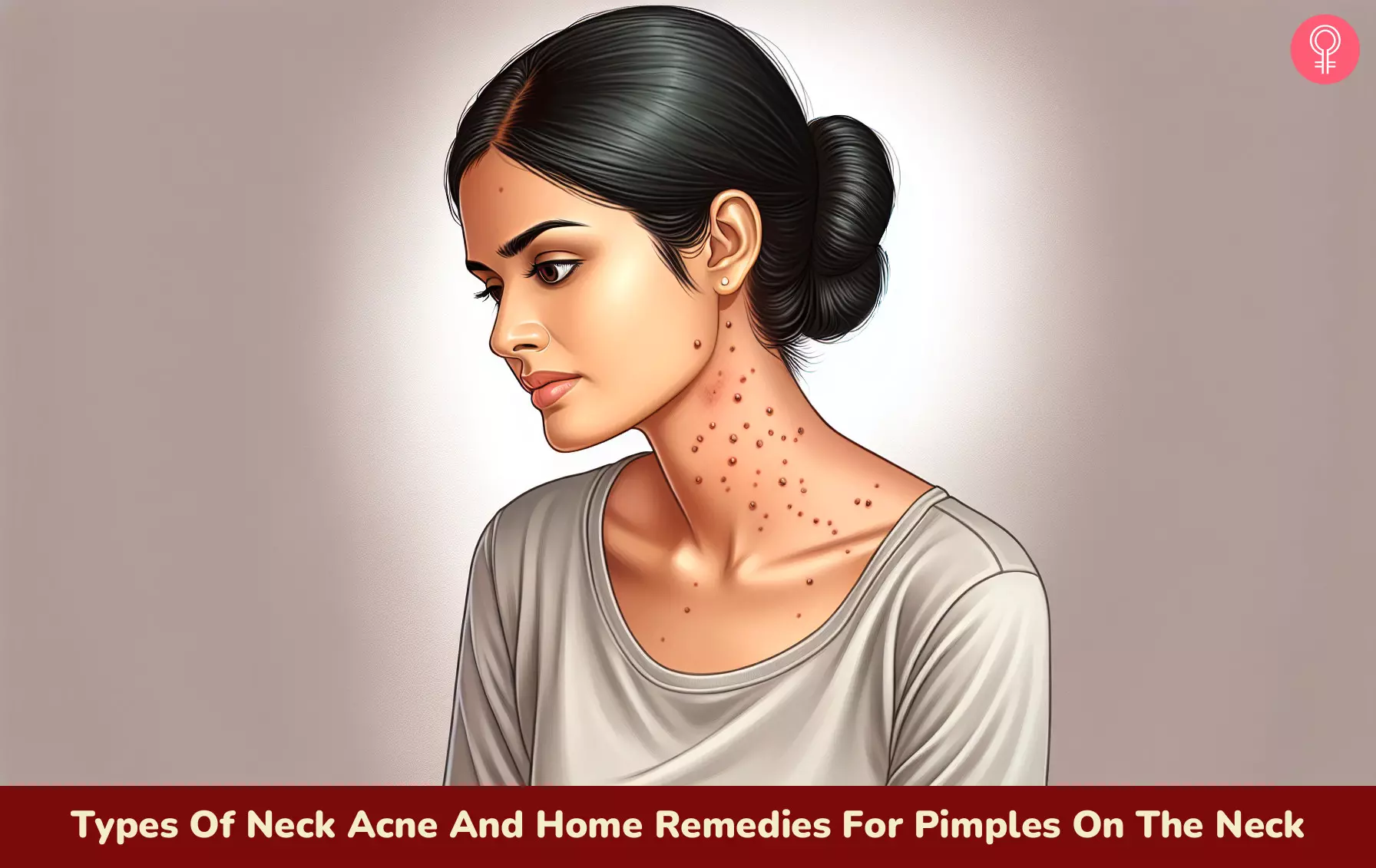
Image: Dall·E/StyleCraze Design Team
Learn how to manage pimples in the neck region. Check out the video below to get tips on how to reduce inflammation and prevent future breakouts.
Personal Experience: Source
StyleCraze's articles are interwoven with authentic personal narratives that provide depth and resonance to our content. Below are the sources of the personal accounts referenced in this article.
i. The most simple skincare routine that helped me beat years of adult acnehttps://medium.com/@nidarshana.sharma/the-most-simple-skincare-routine-that-helped-me-beat-years-of-adult-acne-712190e53e81
References
Articles on StyleCraze are backed by verified information from peer-reviewed and academic research papers, reputed organizations, research institutions, and medical associations to ensure accuracy and relevance. Read our editorial policy to learn more.
- Acne Vulgaris
https://www.ncbi.nlm.nih.gov/books/NBK459173/ - The impact of psychological stress on acne
https://pubmed.ncbi.nlm.nih.gov/28871928/ - Antimicrobial and improvement effects of tea tree and lavender oils on acne lesions
https://www.researchgate.net/publication/269338129_Antimicrobial_and_Improvement_Effects_of_Tea_Tree_and_Lavender_Oils_on_Acne_Lesions - Green tea and other tea polyphenols: Effects on sebum production and acne vulgaris
https://www.ncbi.nlm.nih.gov/labs/pmc/articles/PMC5384166/ - Honey: A therapeutic agent for disorders of the skin
https://www.ncbi.nlm.nih.gov/labs/pmc/articles/PMC5661189/ - The Effect of Aloe Vera Clinical Trials on Prevention and Healing of Skin Wound: A Systematic Review
https://www.ncbi.nlm.nih.gov/pmc/articles/PMC6330525/ - Oatmeal in dermatology: a brief review
https://pubmed.ncbi.nlm.nih.gov/22421643/ - Benzoyl peroxide
https://www.ncbi.nlm.nih.gov/books/NBK537220/ - Salicylic acid as a peeling agent: a comprehensive review
https://www.ncbi.nlm.nih.gov/pmc/articles/PMC4554394/ - Azelaic acid. A review of its pharmacological properties and therapeutic efficacy in acne and hyperpigmentary skin disorders
https://pubmed.ncbi.nlm.nih.gov/1712709/ - Medicinal Plants for the Treatment of Acne Vulgaris: A Review of Recent Evidences
https://brieflands.com/articles/jjm-56552.html - Effect of Aloe vera topical gel combined with tretinoin in treatment of mild and moderate acne vulgaris: a randomized, double-blind, prospective trial
https://www.tandfonline.com/doi/abs/10.3109/09546634.2013.768328?journalCode=ijdt20 - Authenticating apple cider vinegar’s home remedy claims: antibacterial, antifungal, antiviral properties and cytotoxicity aspect
https://pubmed.ncbi.nlm.nih.gov/29224370/ - Long term topical application of lactic acid/lactate lotion as a preventive treatment for acne vulgaris
https://pubmed.ncbi.nlm.nih.gov/17656910/ - Effects of Turmeric (Curcuma longa) on Skin Health: A Systematic Review of the Clinical Evidence
https://onlinelibrary.wiley.com/doi/abs/10.1002/ptr.5640 - ANTIBACTERIAL ACTIVITY OF Citrus limon ON Acne vulgaris (PIMPLES)
http://ijsit.com/admin/ijsit_files/ANTIBACTERIAL%20ACTIVITY%20OF%20Citrus%20limon%20ON%20Acne%20vulgaris%20(PIMPLES)_IJSIT_2.5.7.pdf
Read full bio of Dr. Sruthi Alla
Read full bio of Monomita Chakraborty
Read full bio of Anjali Sayee
Read full bio of Swathi E






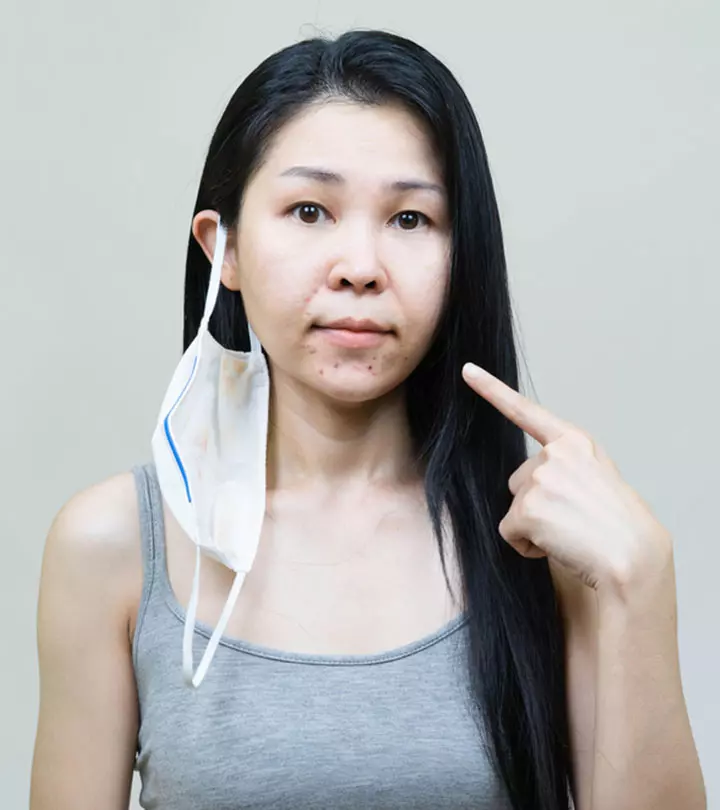
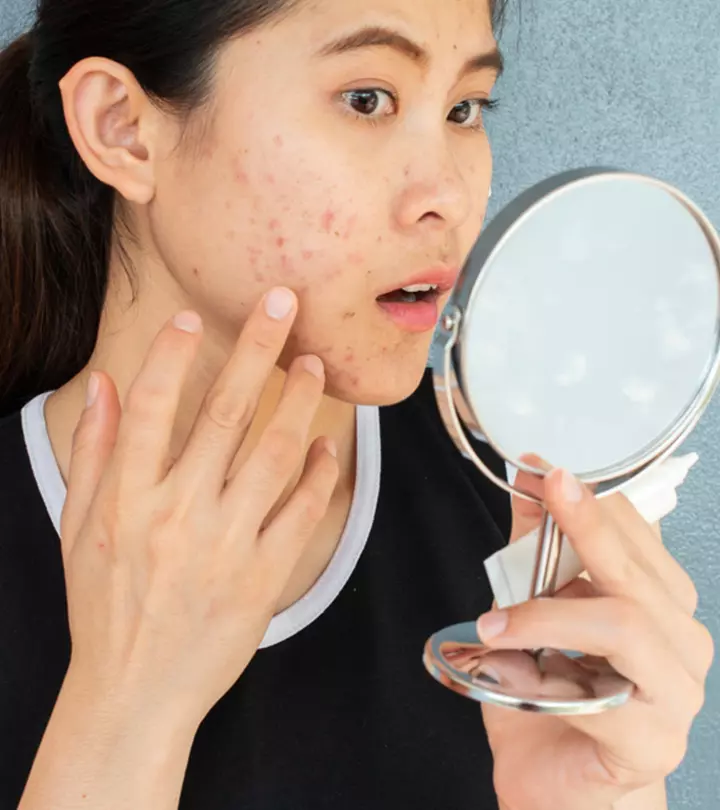
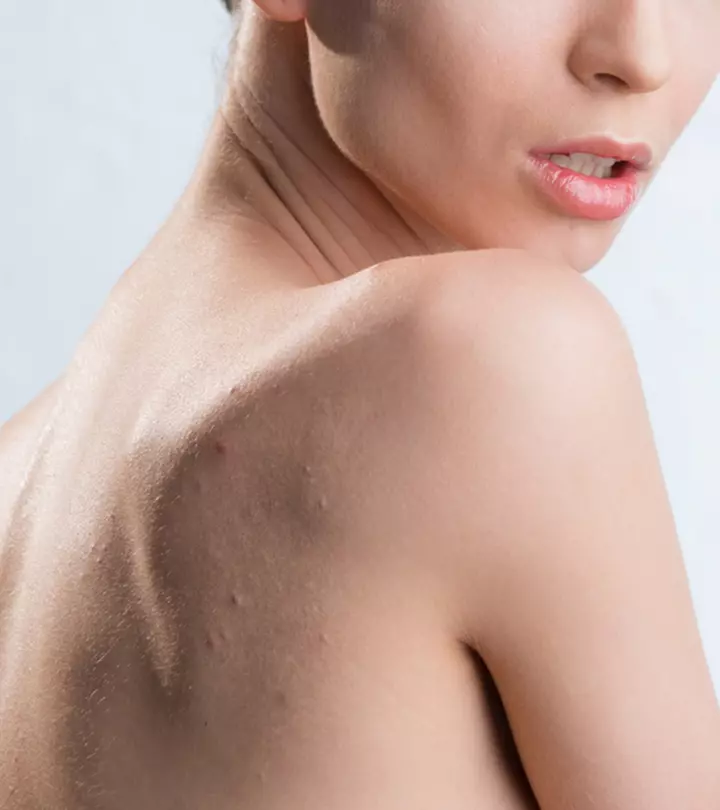
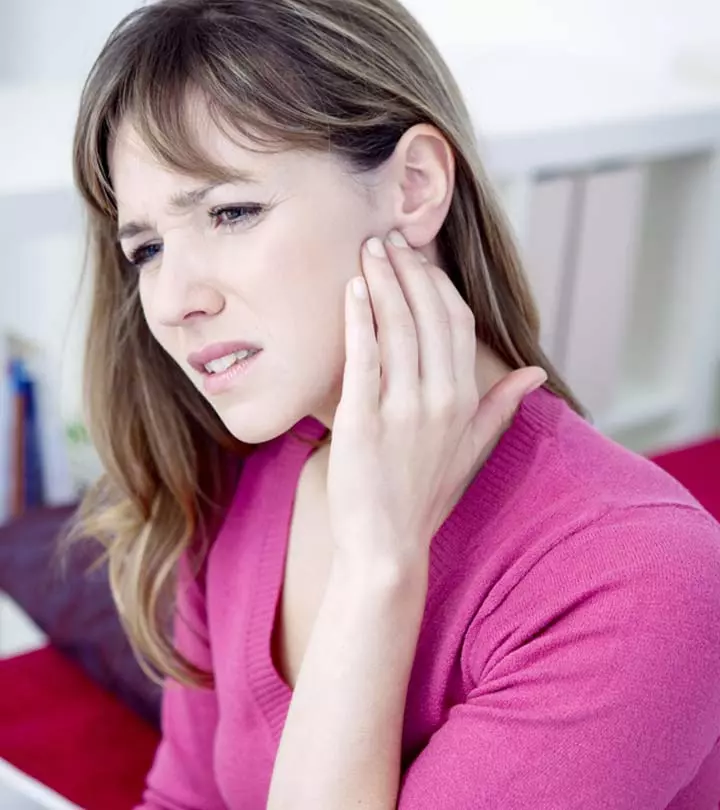
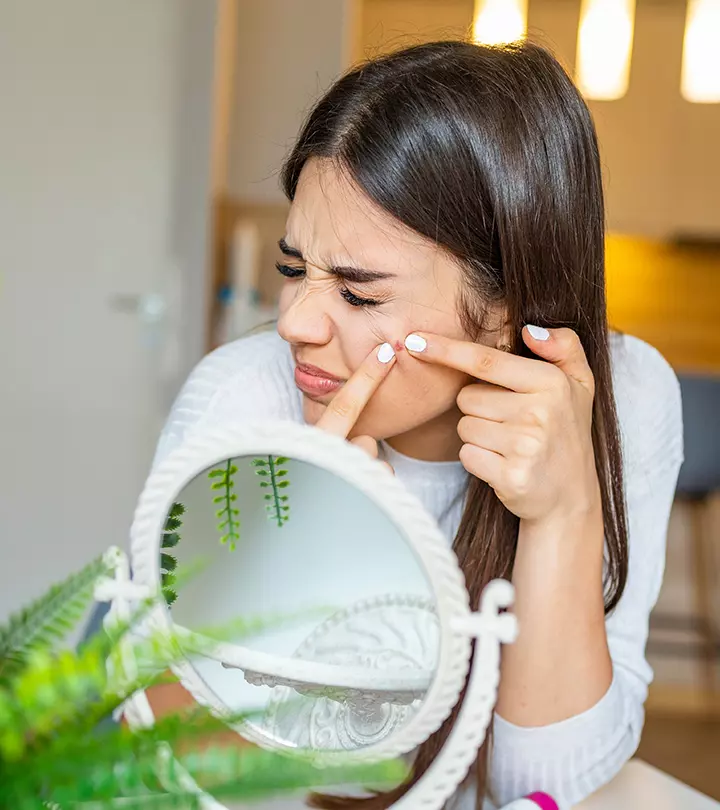
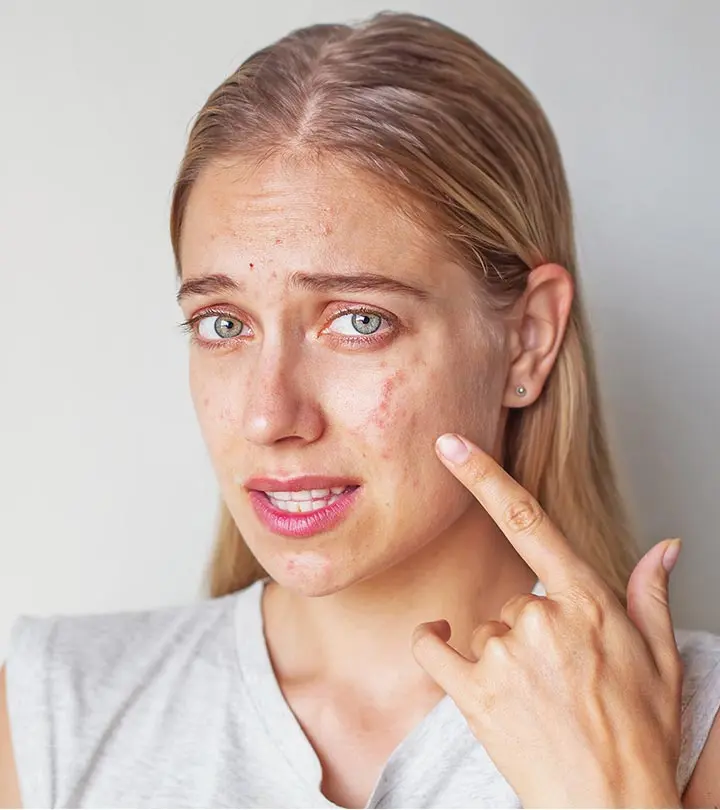
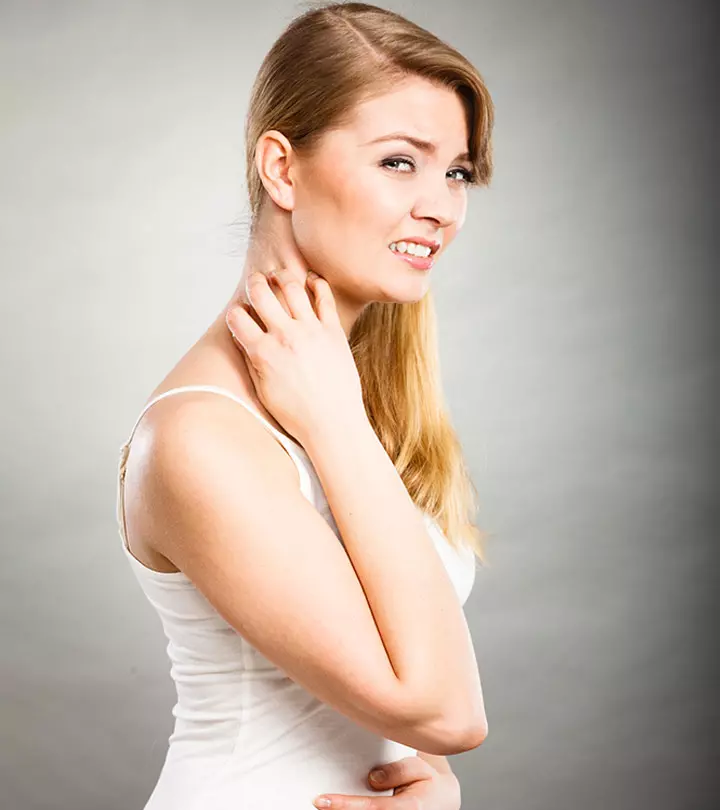
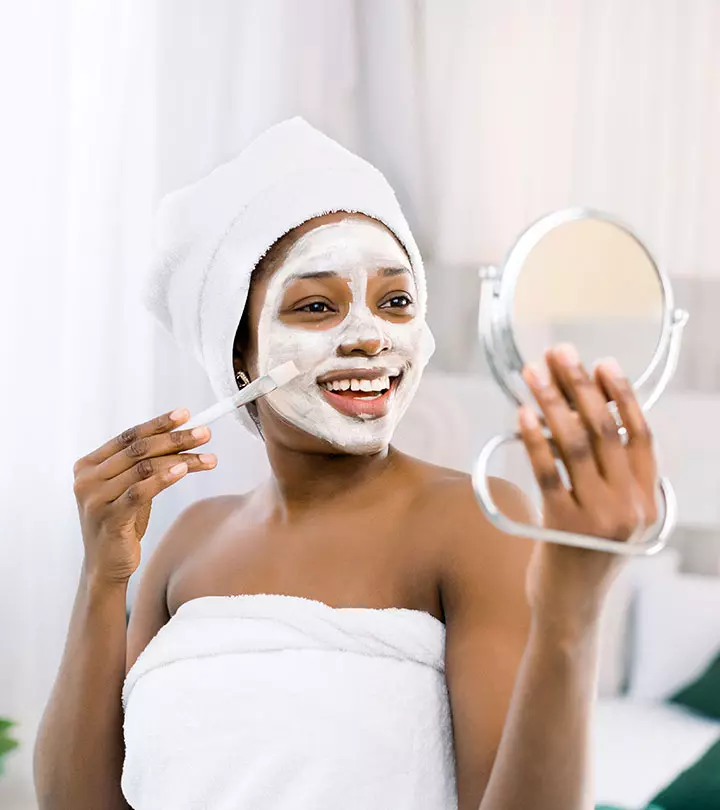
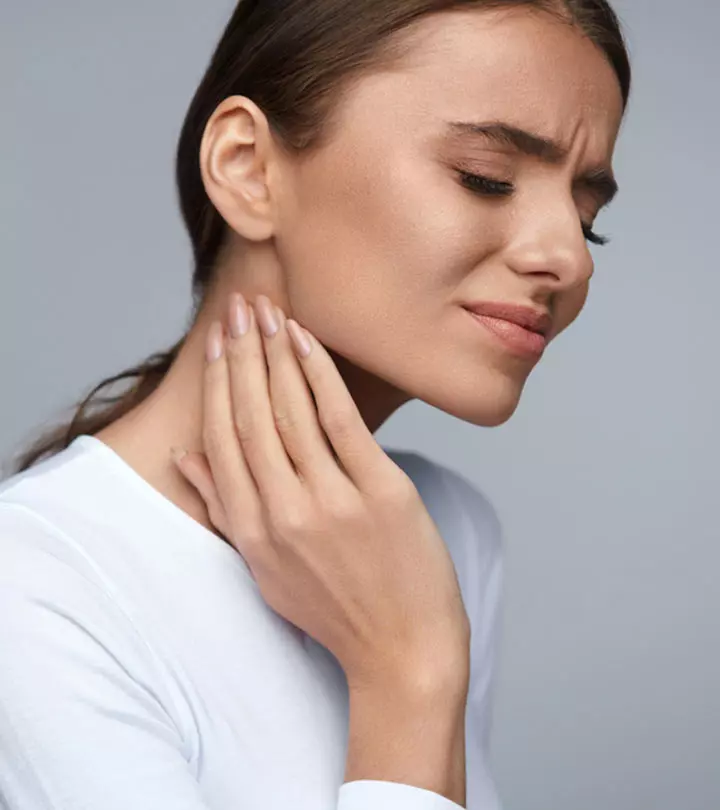
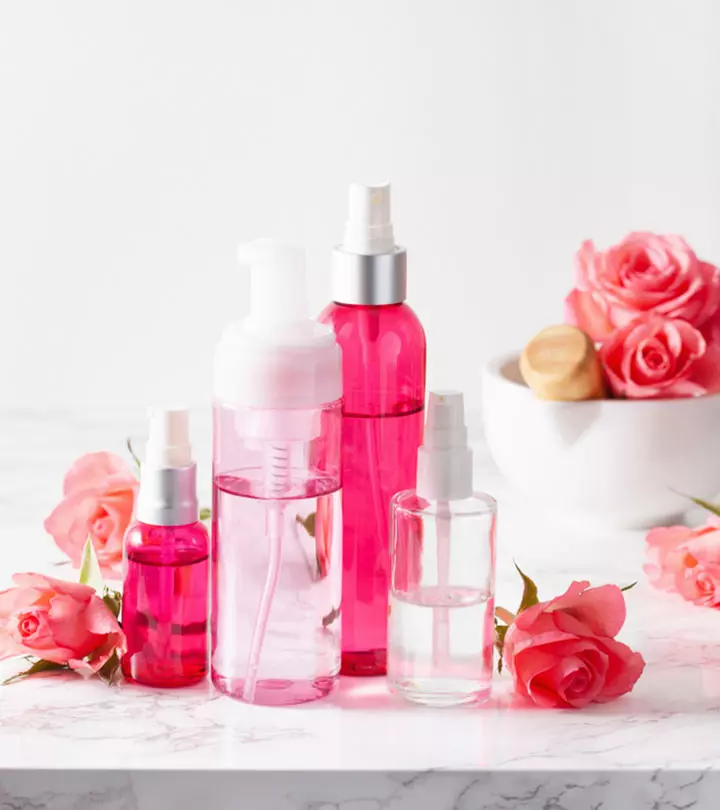



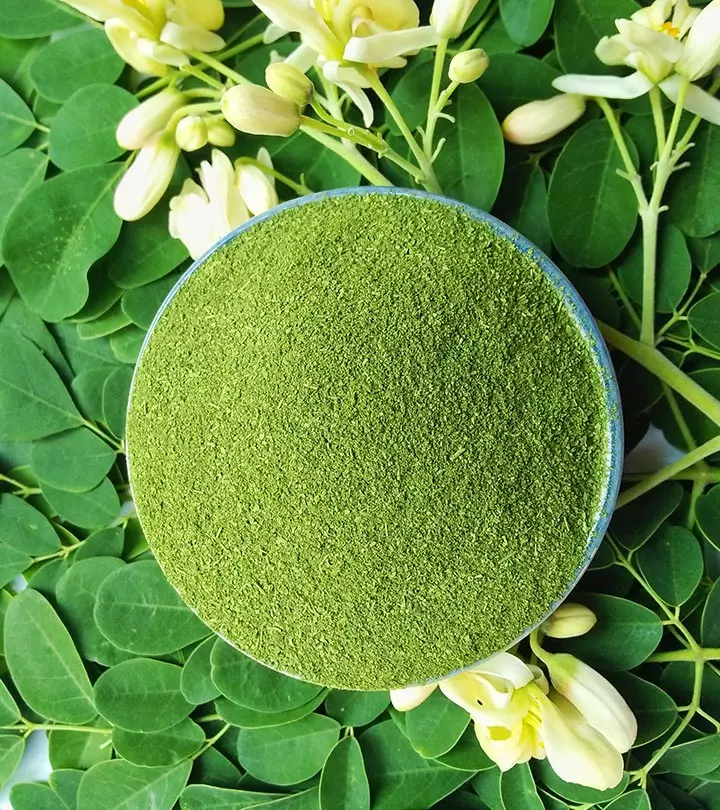
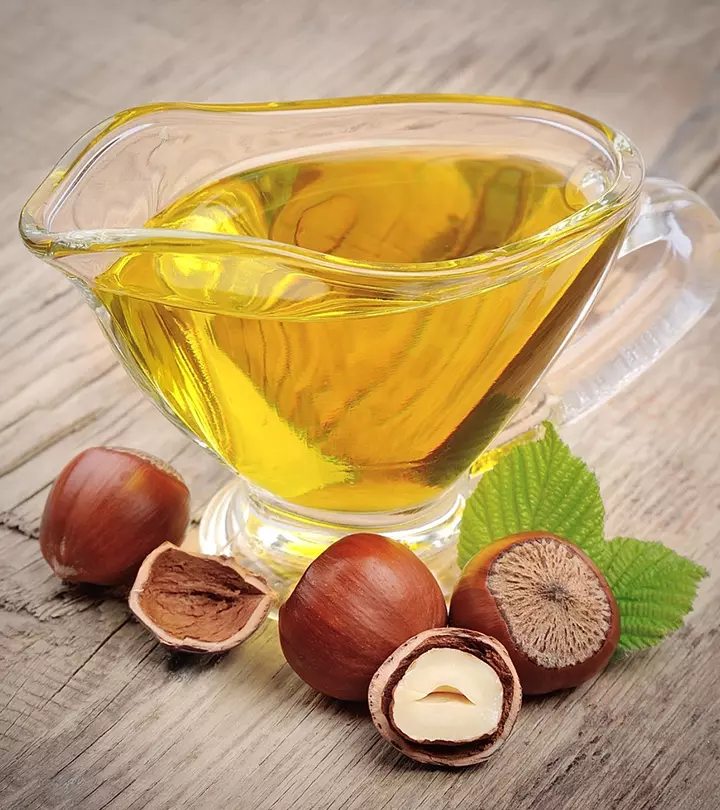
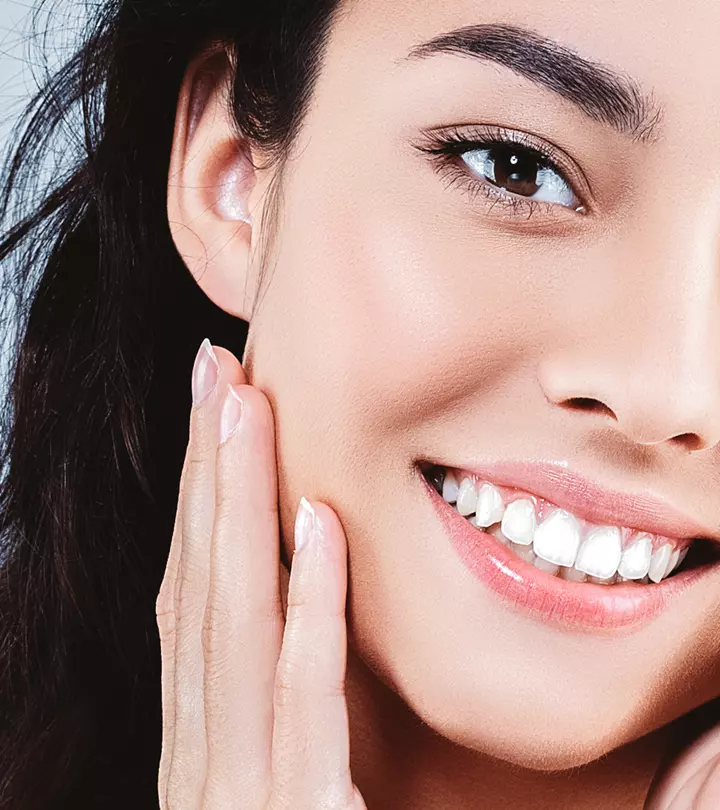
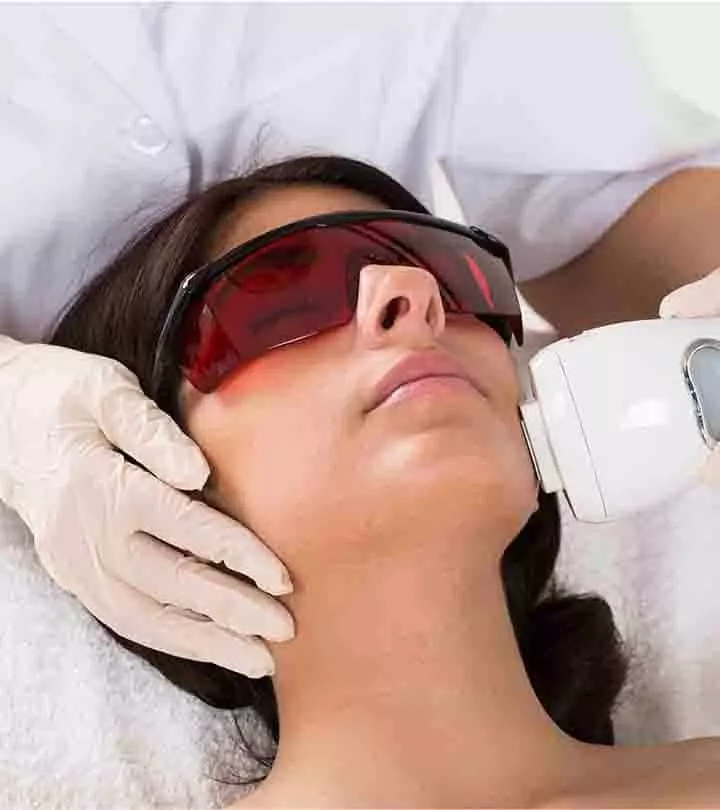
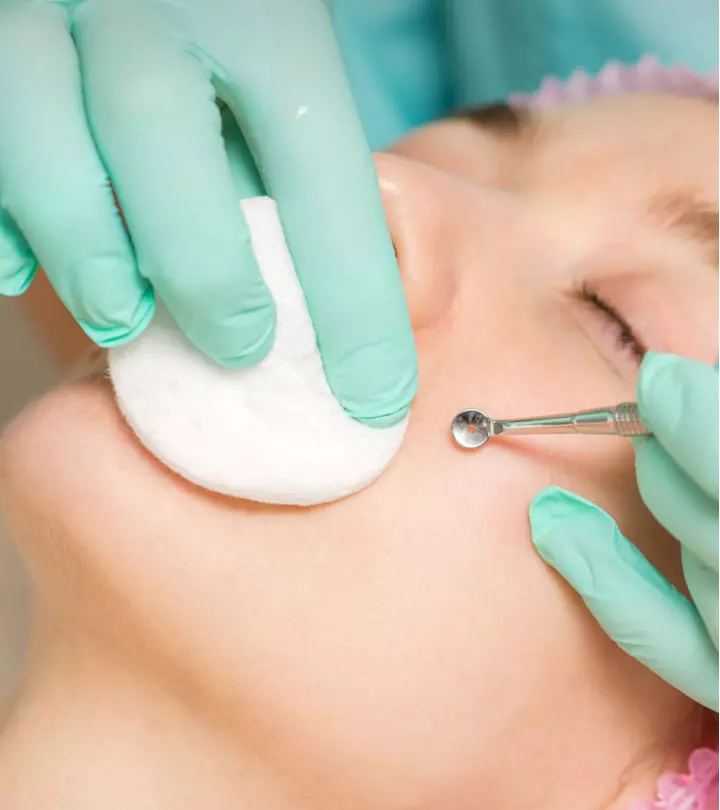
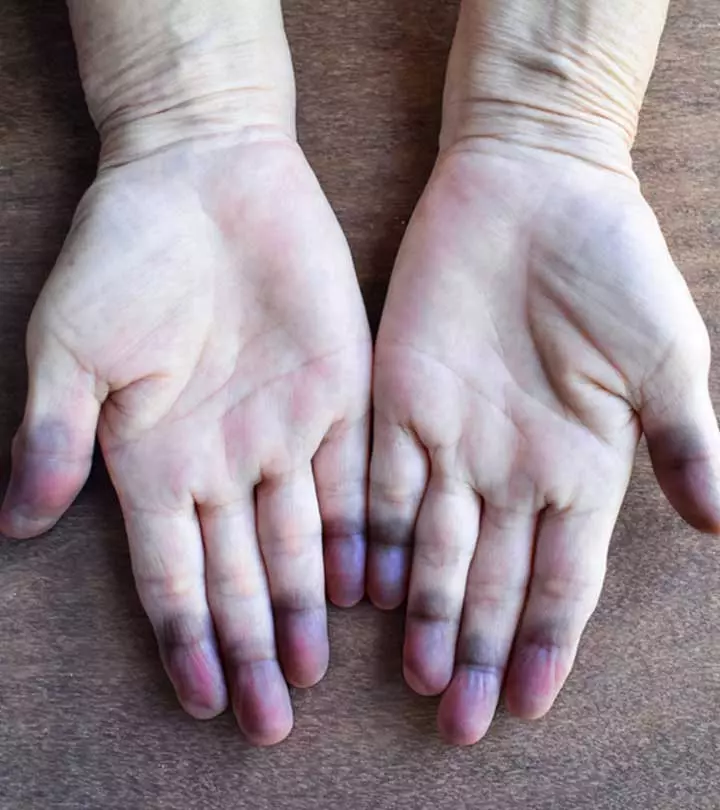
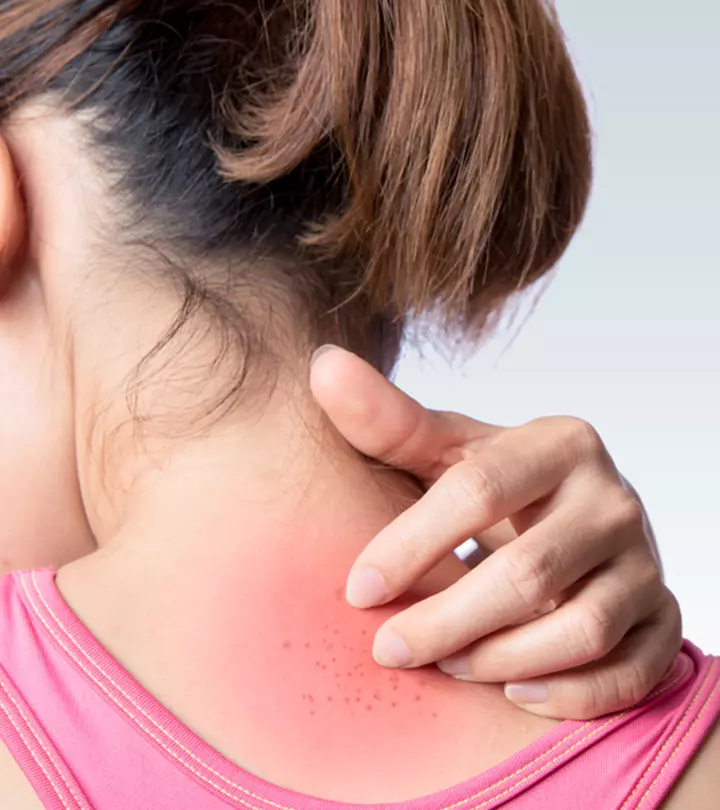
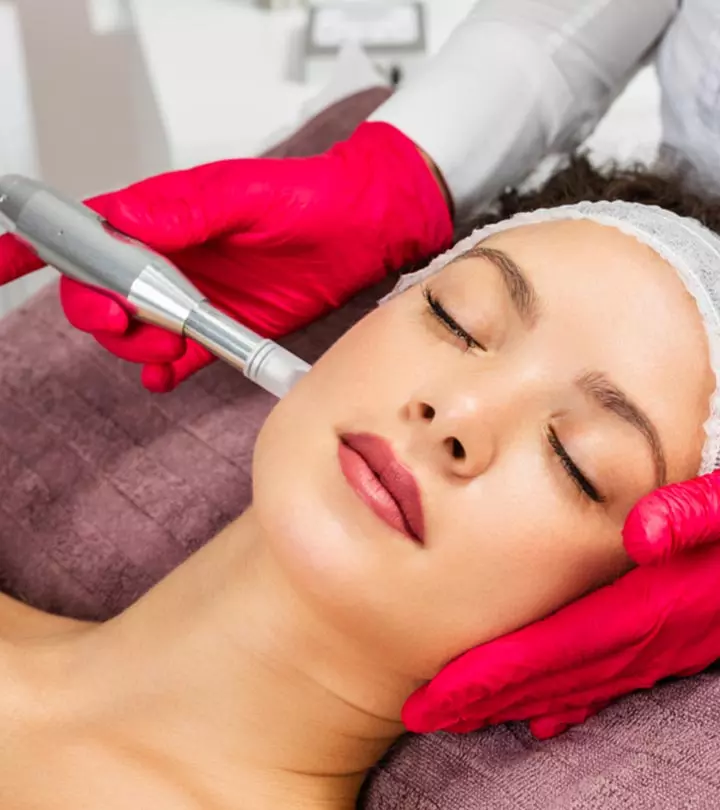
Community Experiences
Join the conversation and become a part of our empowering community! Share your stories, experiences, and insights to connect with other beauty, lifestyle, and health enthusiasts.